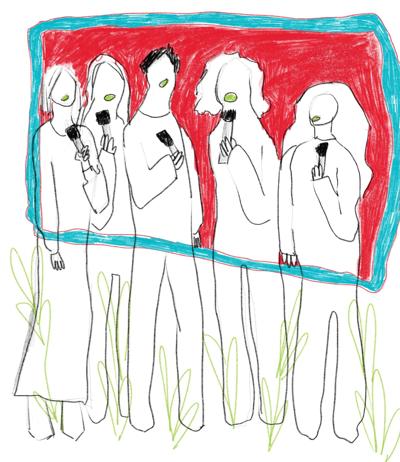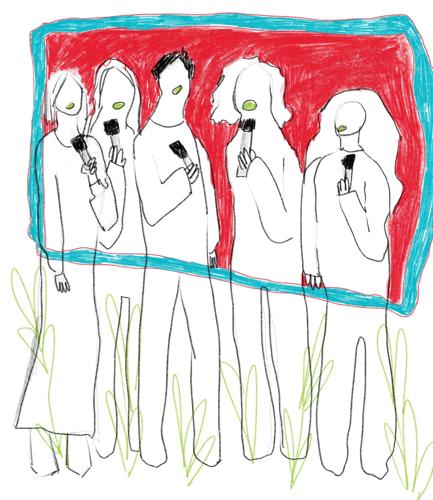Literary Arts’ Oregon Book Awards took place Monday, April 8 at the Armory in NW Portland, hosted by Kwame Alexander. The awards sprawled across seven categories featuring fiction writing, poetry, nonfiction, young adult and graphic literature.
Five finalists were nominated for the reputable Ken Kesey Award for Fiction. Of the finalists, Patrick deWitt, a Canadian American novelist, prevailed, winning the award with his latest novel, “The Librarianist.”
The novel follows Bob Comet, a retired Portland librarian who finds himself dreaming of a seaside hotel from his childhood. In a review of the novel, The Washington Post described it as, “gentler and less strange than his previous books.” It currently sits at a 3.4 star rating on Goodreads.
While the Oregon Book Awards proudly highlights local authors, the national and global reach of the authors’ backstories can be traced throughout their literary articulations. From Canada to Armenia to San Francisco, these authors reconstruct the world as we know it through their fictional retellings.
Lydia Kiesling, "Mobility":
Lydia Kiesling, author of “Mobility,” was one of the finalists for the Ken Kesey Award for Fiction. A novelist and culture writer, her work has received national attention and has been published by notable outlets including The New York Times, The New Yorker online and The Cut.
Her novel, “Mobility,” follows the life of Bunny Glen, an American teenager whose Foreign Service family is stationed in Azerbaijan. The novel begins in 1998, enmeshing girlhood with the rush for Caspian oil and the rise of the War on Terror. The reader ages with Glen as she navigates a career in oil and consequently, class, power and political dynamics.
Though her career as a writer is worlds away from the oil industry, “Mobility” was loosely inspired by Kiesling’s nomadic upbringing.
“My dad worked for the State Department and that means we moved around a lot,” Kiesling said. “One of these countries was Armenia, a land cursed without oil reserves, where people migrate out, not in.”
While contemplating a setting for her book, Keisling studied Azerbaijan, an oil-rich neighbor of Armenia.
“As I was doing that I realized that I wanted and needed to put it in a broader geopolitical context,” Kiesling said. “I got really interested in oil as one of the ways to give that context.”
The similarities between Kiesling and main character, Bunny Glen, diverge as the book develops and she settles into her oil career. “When she's in high school and then in the workforce in her twenties, trying to find her feet, those are really taken from my own experience,” Kiesling said. “It's when she's getting into her thirties and forties, that our lives diverge a lot. But she and I definitely share DNA.”
Interested in learning more about the ever present issue of oil through a female lens? Pick up a copy of “Mobility.”
Jen Wheeler, “The Light On Farallon Island”:
Jen Wheeler drew inspiration for her novel, “The Light on Farallon Island,” from Susan Casey’s non-fiction novel, “The Devil’s Teeth.” The book centers around great white shark researchers stationed in the Farallon Islands off of San Francisco. Inspired by the eeriness of the landscape through Casey’s vivid description, Wheeler created this gothic historical novel.
“The Light on Farallon Island” is Wheeler’s debut novel. “I have been working on really sprawling unfinished manuscripts since I was a teenager,” Wheeler said. “But they're all really unwieldy. I never came close to finishing anything.”
Wheeler was laid off from her dream job as a food writer in 2020, but the silver lining was severance pay which allowed her the time and space to create a complete novel. The whole process took Wheeler less than a year.
The novel follows Lucy Riley, a teacher to the lighthouse keepers’ children on the island. Shrouded with mystery, the book reels the reader in. Pick up a copy of “The Light on Farallon Island” for a moody read, and look out for Wheeler’s second novel, “A Cure For Sorrow,” coming out on Sept. 24.
Marcelle Heath, “Is That All There Is?”
Marcelle Heath’s collection of short stories, “Is That All There Is?” was inspired by Peggy Lee’s song of the same name. Heath used the haunting song as a stepping stone for the overall tone of her collection.
“It’s really a story about all these things happening that you have no control over,” Heath said of the song. “So the stories are very much drawn to mysteries and things that are beyond one’s control.”
Many of the stories in “Is That All There Is?” center around female protagonists and are loosely drawn from Heath’s own experiences navigating the world as a woman. “I would say the emotions of something happening to me in my life may inspire me,” Heath said. “Some characters are an amalgamation of people that I know or have met in my life.”
Heath’s favorite story from the collection is a list story titled, “Nine Times Gretchen King is Mistaken.” “It has remained one of my favorite stories in the collection because it’s funny and the character’s unlikeable,” Heath said. “She's an unlikable narrator, but she has a kind of a fascinating backstory, and she has a complicated relationship with her daughter.” Heath, who also, at times, had a fraught relationship with her mother, feels a personal connection to the piece.
“Is That All There Is?” is available for purchase through AWST Press, an independent literary publisher based in Austin, Texas.
Rachel King, “Bratwurst Haven”:
Rachel King, author of “Bratwurst Haven,” UO Alumni and finalist for the Ken Kesey Award for Fiction, was inspired to write her collection of short stories after four years of living in Colorado, but said, “everything I’ve experienced, imagined, felt and observed goes into my fiction in one way or another.”
The stories featured in “Bratwurst Haven” explore themes of class, human connection and American culture. The stories traverse topics of how low-wage workers provide support for each other, what it means to be a Western American and the long-term impact of short-term friends.
King studied English and Russian at UO, and after completing the KIDD tutorial writing course, she was convinced to dedicate her life to creative writing.
“Writing creatively is a practice and a lifestyle,” King said. “Like that person in my neighborhood who plays the drums alone in their garage every evening while I walk my dog. I do want an audience, but to sustain the practice, I have to like doing it in and of itself.”
Explore Western American culture through “Bratwurst Haven’s” smattering of outcast characters: a laid-off railway engineer, an exiled computer whiz, a woman estranged from her infant daughter and more.


